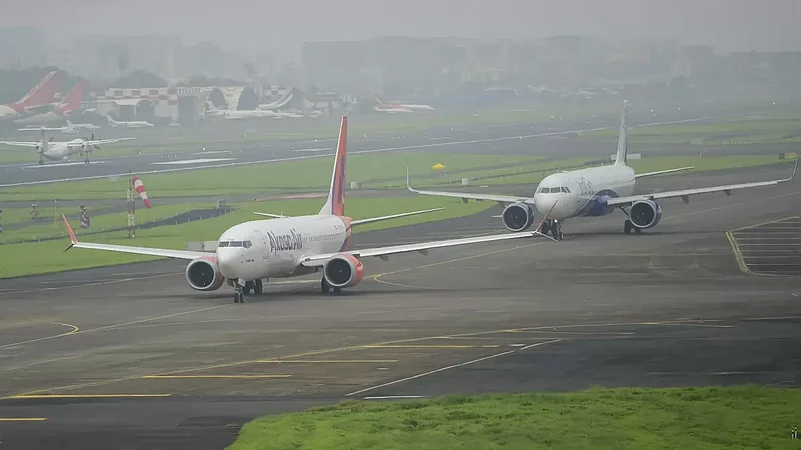The Directorate General of Civil Aviation (DGCA) directed domestic airlines on Saturday to immediately inspect emergency exits of all Boeing 737-8 Max planes in their fleets as an "abundant precautionary measure" in the wake of the Alaska Airlines incident.
A senior DGCA official stated that "one-time emergency exit checks" should mandatorily be conducted by all operators by noon on January 7. The official clarified that the inspections would take place during the night halt of the aircraft, ensuring no impact on flight schedules.
Currently, more than 40 Boeing 737-8 Max planes are operated by three domestic carriers — Akasa Air, SpiceJet, and Air India Express.
The directive follows an Alaska Airlines incident where the outer section, including a window, fell off mid-air, and the involved aircraft was a Boeing 737-9 Max. Indian carriers currently do not have Boeing 737-9 Max aircraft in their fleets.
The DGCA official emphasized that the latest directive is an abundant precautionary measure, stating, "DGCA has directed all the Indian air operators to carry out a one-time inspection of the emergency exits immediately on all Boeing 737-8 Max aircraft currently operating as part of their fleet."
Regarding the Alaska Airlines incident involving Boeing 737-9 Max aircraft, the official mentioned that there have been no inputs or guidance from Boeing so far.
When asked about potential impacts on flight schedules due to the inspections, the official replied in the negative, stating, "No, these one-time checks will be done during the night halt of the aircraft."
In their fleets, Akasa Air has 22 Max planes, SpiceJet has more than 10 such planes, and Air India Express has nine such aircraft. Boeing has not provided an immediate comment on the DGCA directive.
"We do not have any 737-9 Max in our fleet. SpiceJet will adhere to the DGCA directive on the Max-8," a SpiceJet spokesperson confirmed.
An Akasa Air spokesperson mentioned that the airline currently does not have any 737-9 Max aircraft in its fleet, which was the aircraft type involved in the Alaska Airlines incident. The spokesperson added, "Even though the incident has occurred with another airline in the US, we are in contact with the aircraft manufacturer and regulators to proactively monitor developments and will follow any guidance issued by them."
An Air India Express spokesperson stated in a release that the aircraft involved in the Alaska Airlines incident was a different variant from the B737-8 operated by Air India Express. The spokesperson assured, "We are in touch with Boeing for more information regarding this, as well with our regulators and will comply with any advisory."
In a statement on Saturday, a Boeing spokesperson acknowledged being aware of the incident involving Alaska Airlines flight 1282. "We are working to gather more information and are in contact with our airline customer. A Boeing technical team stands ready to support the investigation," the spokesperson said about the incident that happened on Friday.


























